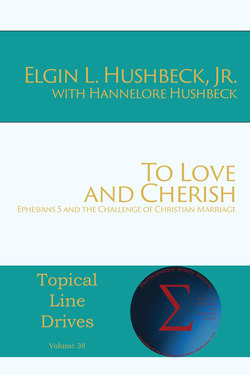Читать книгу To Love and Cherish - Hannelore Hushbeck - Страница 4
На сайте Литреса книга снята с продажи.
ОглавлениеIntroduction
If you want to strike fear and trembling into their heart, ask a pastor or biblical teacher to speak before a group of women on Ephesians 5:22. This verse is a proof text for many on how the Bible is completely out of touch and archaic. Its teachings are not just to be ignored, but to be actively opposed as patriarchal and oppressive, a dangerous relic of the past. The key offense occurs in the first part of verse 22, with its command, “Wives, submit yourselves to your husbands.” Could anything be more at odds with our modern and enlightened view of equality and relationships?
True, for some Christians this is not a troubling verse at all. In fact, for them, it is a proof text for how the world is corrupt and to be rejected for it is destroying the natural, God-given, order of things. I reject this view. Other Christians, however, view it as a prime example of how the Bible is not to be taken literally and without error. As an evangelical Christian believing in the inerrancy of scripture, while I reject the former view, I reject this view as well, and thus I cannot simply ignore this passage as an archaic relic of our patriarchal past.
I would agree Ephesians 5:22 is a particularly challenging verse, but I would also argue it has a lot to teach us, not just concerning the relationship between wives and husbands, but also about issues with translations, how we understand the historical, literary, and biblical context of a passage, and how we apply the meaning of texts to our own lives. It goes to the heart of who we are and how we should relate to one another. It also goes to the heart of the nature of scripture and how God communicates to us, and thus, how we should read and understand the Bible.
To begin to grasp these issues, one only need look at the underlying Greek text behind the command, “Wives, submit yourselves to your husbands.” A strictly literal translation of this passage would be “the wives to their own husband.” I am not saying the translation is wrong, only that this issue is more complex than it may at first seem, and the passage cannot be correctly understood simply from the passage quoted. This passage has a context, and it cannot be correctly understood apart from that context. This book will be an attempt to understand that context, and in the process what these verses are saying.
